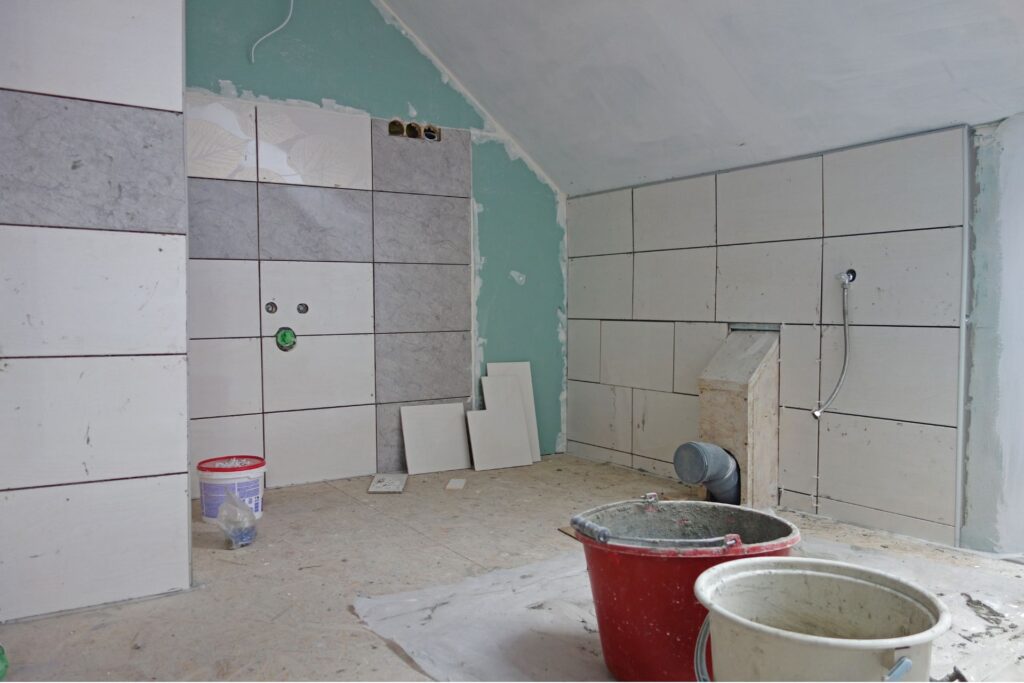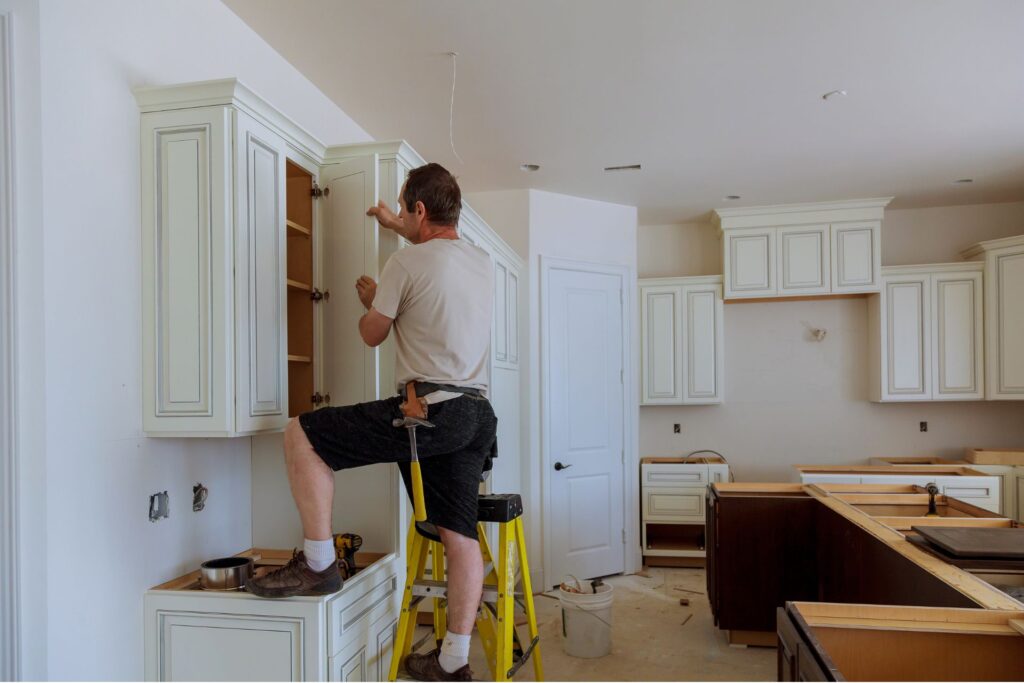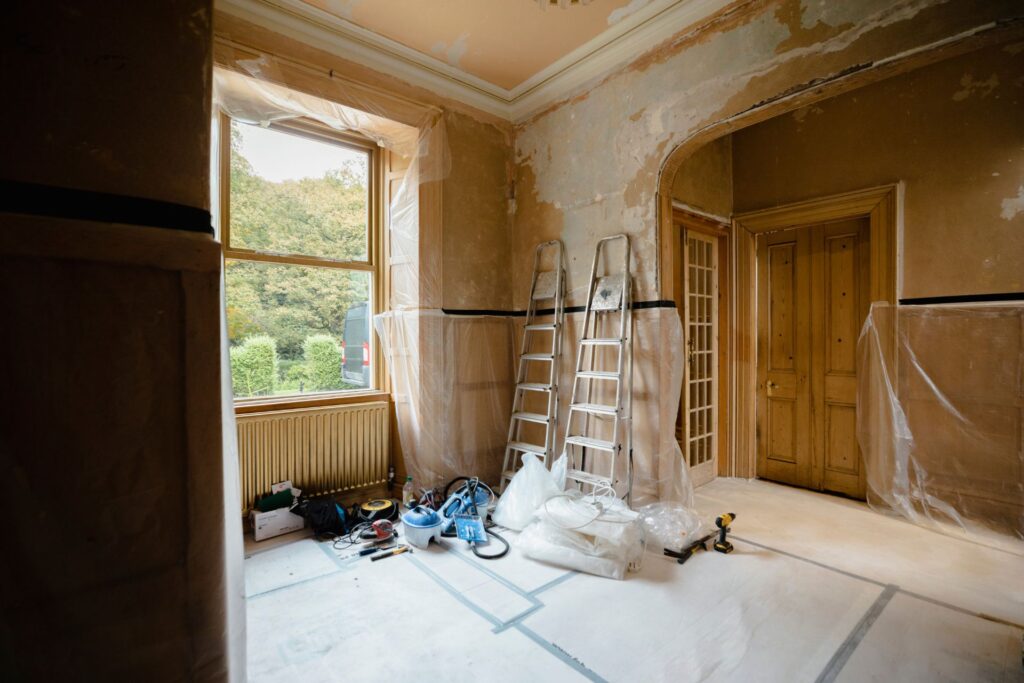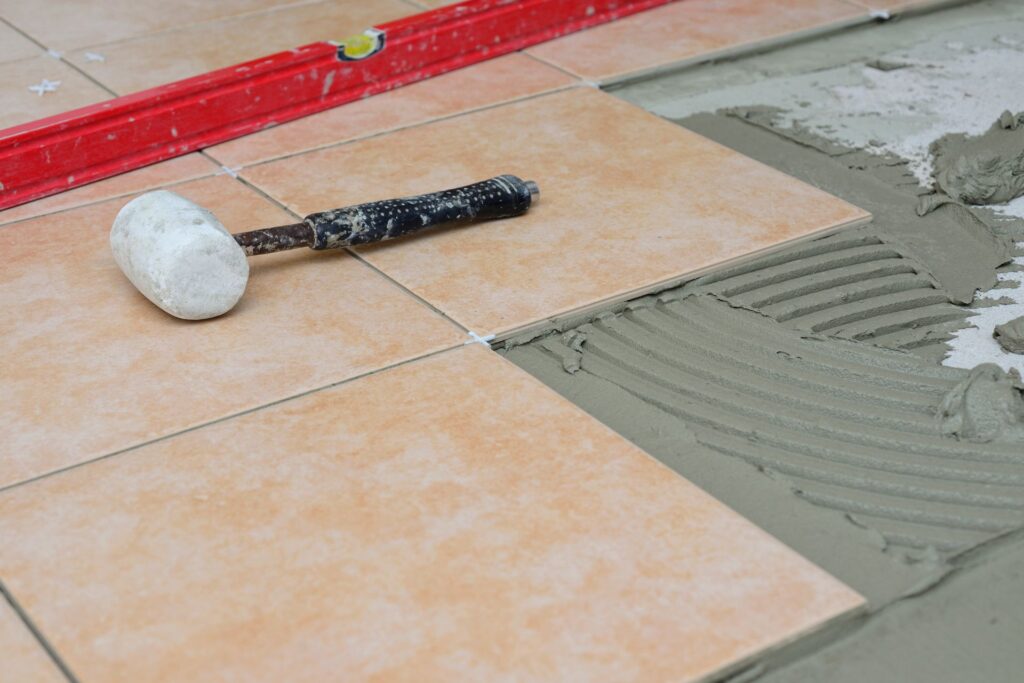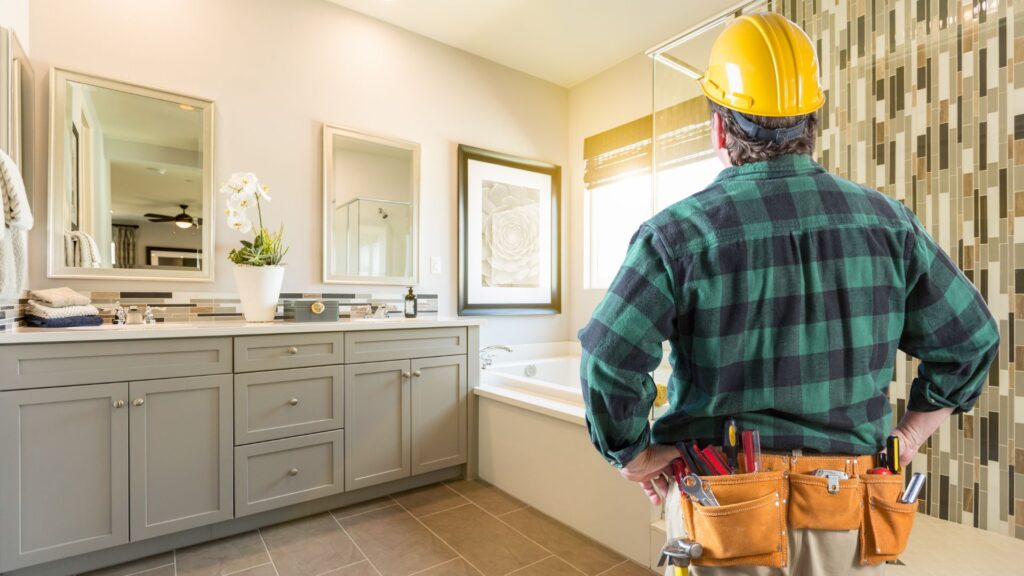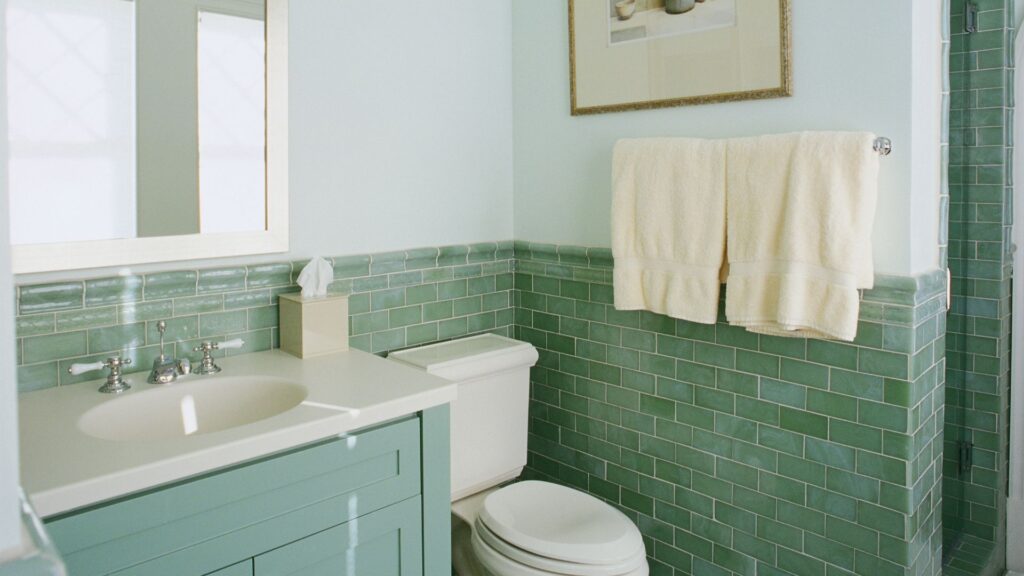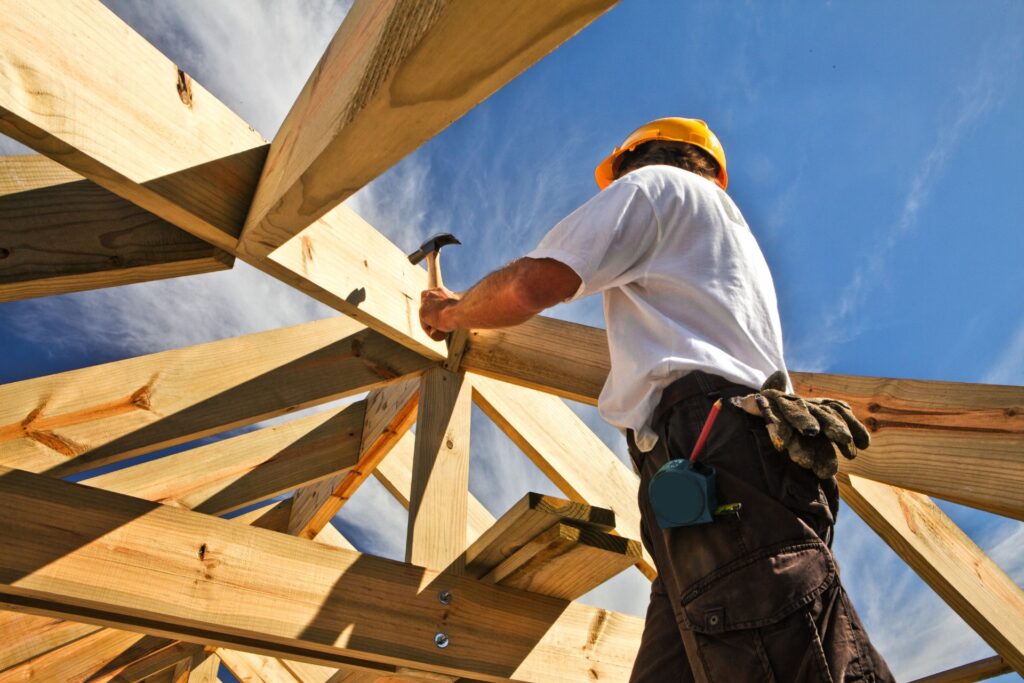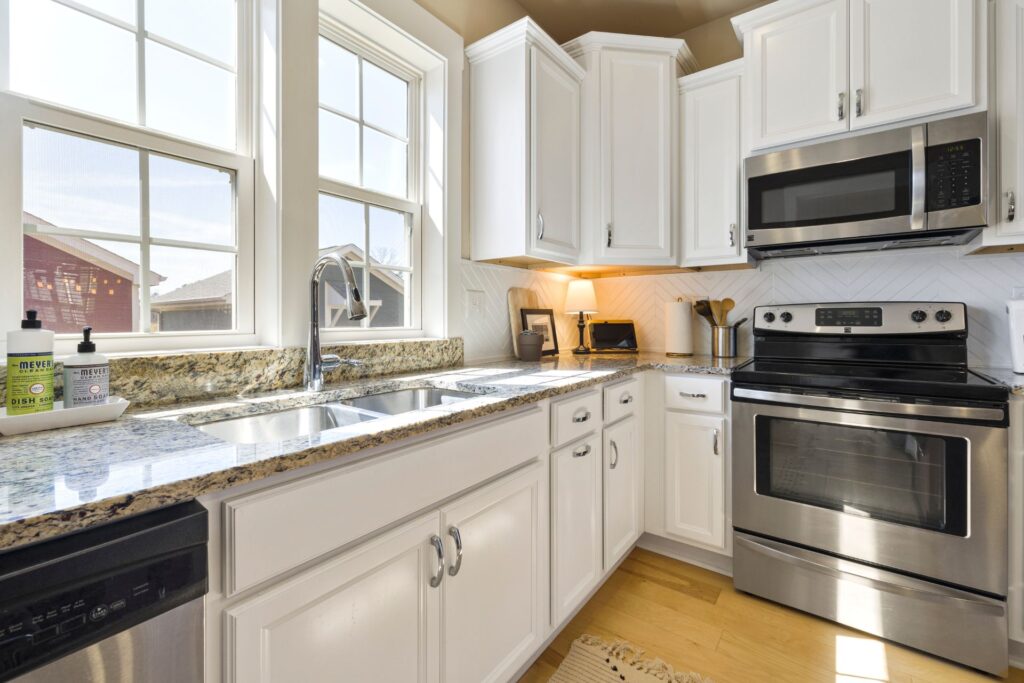Welcome to your ultimate guide to understanding the cost of bathroom renovations in New Zealand. Whether you’re dreaming of a luxurious spa-like retreat or simply looking to modernize your current space, knowing what to expect in terms of costs is crucial. This comprehensive breakdown will walk you through the various factors that influence the price of a bathroom renovation, from the size of your bathroom to the quality of materials and labor costs. By the end of this guide, you’ll have a clear picture of what to budget for and how to make the most of your renovation investment.
On average, bathroom renovations in New Zealand cost between $10,000 and $30,000, depending on the size of the space, the quality of materials, and the scope of the renovation. Smaller projects may start at around $5,000, while high-end renovations can exceed $50,000. Understanding these factors helps in setting a realistic budget for your renovation.
Table of Contents
Factors Affecting The Cost Of Bathroom Renovations In NZ
When planning a bathroom renovation in New Zealand, understanding the factors that influence costs is essential for staying within your budget. The following breakdown will help you grasp how various elements can impact the overall expense of your project, whether you’re working on a small bathroom or a spacious one, opting for a simple refresh or a full overhaul.
Size of the Bathroom
The size of your bathroom is one of the most significant factors affecting renovation costs. A larger bathroom typically requires more materials, labor, and time, leading to higher expenses. For example, a small bathroom might only need a few square meters of tiles, whereas a larger space will require more, driving up both material and installation costs.
- Small Bathroom vs. Large Bathroom: Renovating a small bathroom can be more cost-effective, as you’ll need fewer materials and less labor. However, small spaces can also present challenges, such as limited storage and maneuverability, which may require custom solutions that add to the cost. On the other hand, a large bathroom offers more design flexibility but will naturally cost more due to the increased surface area that needs to be covered and the additional fixtures required.
Scope of Renovation
The scope of your renovation plays a crucial role in determining the final cost. Depending on your goals, you might be looking at anything from a minor update to a complete transformation.
- Partial vs. Full Renovation: A partial renovation typically involves updating specific elements, such as replacing old fixtures, repainting, or re-tiling. This approach can be relatively affordable, making it ideal for those on a budget or looking to freshen up their space. In contrast, a full renovation involves a complete overhaul, including replacing all fixtures, updating plumbing and electrical systems, and possibly altering the layout. This type of renovation is much more expensive but results in a brand-new bathroom.
- Structural Changes: If your renovation includes moving plumbing fixtures, such as relocating a toilet or shower, or altering the layout, expect to incur additional costs. Structural changes often require professional expertise, permits, and possibly reinforcing or altering existing structures, all of which can significantly increase the project’s overall cost.
Quality of Materials
The materials you choose for your bathroom renovation will have a substantial impact on your budget. From tiles and faucets to bathtubs and vanities, the quality and style of materials can vary widely in price.
- Tiles, Fixtures, and Fittings: The cost of tiles, fixtures, and fittings can vary dramatically based on the material, design, and brand. For instance, natural stone tiles are more expensive than ceramic ones, and high-end fixtures from well-known brands will cost more than budget alternatives. However, investing in quality materials can enhance your bathroom’s durability and aesthetic appeal, potentially increasing your home’s value.
- Luxury vs. Budget: When selecting materials, you have the option to go for luxury or budget-friendly choices. Luxury materials, such as marble countertops or designer fixtures, will elevate the look of your bathroom but come with a higher price tag. Budget-friendly materials, like laminate countertops or standard fixtures, can still offer a stylish finish at a fraction of the cost. It’s essential to balance your desire for quality with your budget constraints.
Labor Costs
Labor is another significant factor in bathroom renovation costs, particularly in New Zealand, where hiring skilled tradespeople is essential for ensuring a high-quality finish.
- Hiring Professionals: The cost of hiring professionals, such as plumbers, electricians, tilers, and carpenters, can vary depending on their expertise and your location. In most cases, professional labor is the largest expense in a renovation project. Plumbers and electricians are particularly costly, as their work is critical to the bathroom’s functionality and safety. It’s crucial to factor in these costs when budgeting for your renovation.
- DIY vs. Hiring: While some homeowners may be tempted to take on certain renovation tasks themselves to save money, it’s essential to weigh the pros and cons. DIY projects can reduce labor costs but may lead to mistakes that require costly repairs or even compromise the bathroom’s safety and functionality. On the other hand, hiring professionals ensures that the work is done to a high standard, complies with building codes, and comes with warranties, providing peace of mind.
By carefully considering these factors, you can better understand what to expect when planning your bathroom renovation in New Zealand. Balancing your desires with your budget and being aware of the potential costs associated with each aspect of the project will help you make informed decisions and achieve the bathroom of your dreams without breaking the bank.
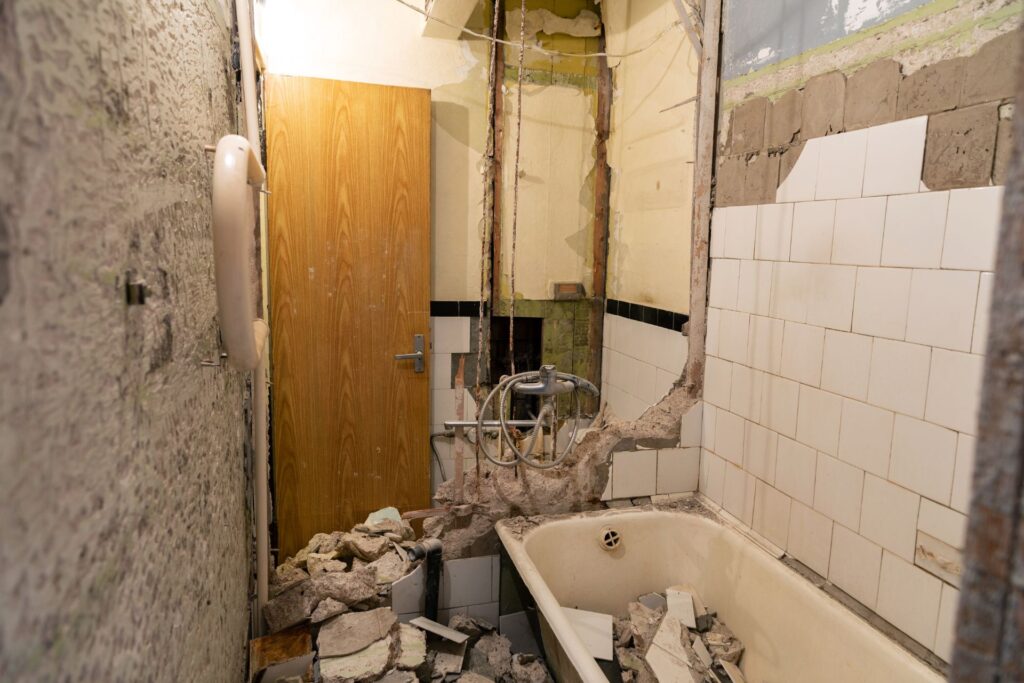
Typical Cost Breakdown
When planning a bathroom renovation in New Zealand, it’s crucial to understand the various costs involved. These costs can be broadly categorized into three areas: materials, labor, and permits and compliance. Each of these categories plays a significant role in determining the overall budget for your project.
Materials
The materials you choose for your bathroom renovation can greatly influence the final cost. Below is a breakdown of some of the most common material expenses.
Tiles
Tiles are a major component of any bathroom renovation. The cost per square meter can vary widely depending on the type of tile you choose. For example, ceramic tiles are often more affordable, ranging from $30 to $50 per square meter, whereas natural stone tiles like marble or granite can range from $80 to $150 per square meter. Popular options in New Zealand include porcelain, which offers durability and a high-end look, and subway tiles, which are a timeless choice that works well in both modern and traditional bathrooms.
Fixtures
Fixtures are another significant expense in any bathroom renovation. This includes items such as bathtubs, showers, vanities, and toilets. The cost of these fixtures can vary depending on the brand, material, and design. For instance, a basic bathtub might cost around $400, while a luxury freestanding tub can set you back $2,000 or more. Showers also range widely in price, from about $1,000 for a standard shower enclosure to over $5,000 for a custom-built shower with high-end features. Vanities can cost anywhere from $500 to $3,000 depending on size and materials, and toilets generally range from $200 to $1,000.
Plumbing and Electrical
Renovating a bathroom often requires updating or installing new plumbing and electrical systems. These updates are necessary to accommodate new fixtures and to ensure that everything meets current safety standards. The cost for plumbing and electrical work can vary significantly depending on the complexity of the project. Basic plumbing work, such as installing a new toilet or sink, might cost between $150 to $500 per fixture. However, if you need to re-route pipes or upgrade your entire plumbing system, costs could rise to $2,000 or more. Electrical work, such as installing new lighting or heated towel rails, can add an additional $200 to $1,000 to your budget.
Labor
Labor costs are another major consideration when budgeting for a bathroom renovation. These costs can be broken down into hourly rates for tradespeople and project-based costs.
Hourly Rates
The cost of hiring tradespeople in New Zealand can vary depending on their level of experience and the region you’re in. On average, you can expect to pay between $45 and $90 per hour for a qualified tradesperson such as a plumber, electrician, or tiler. It’s important to remember that more experienced tradespeople might charge higher rates, but they can often complete the work more quickly and to a higher standard.
Project-Based Costs
For larger bathroom renovations, many homeowners prefer to work with a contractor who charges a project-based fee. This fee can vary depending on the size and scope of the renovation. For example, a small bathroom renovation might cost between $10,000 and $15,000, while a larger, more complex project could range from $20,000 to $40,000 or more. These costs typically include both materials and labor, but it’s always a good idea to clarify what is included in your contractor’s quote.
Permits and Compliance
In New Zealand, certain bathroom renovations may require building consents and compliance with local building codes. These costs can add up, especially if you’re renovating an older home.
Building Consents
If your renovation involves structural changes, such as moving walls or altering plumbing and electrical systems, you may need to obtain a building consent. The cost of obtaining a building consent can vary depending on the complexity of the project, but you can generally expect to pay between $500 and $2,000. It’s important to check with your local council to determine whether a consent is required for your specific renovation.
Compliance Costs
Ensuring that your renovation meets New Zealand’s building code requirements is crucial, particularly for older homes. Compliance costs can include everything from upgrading insulation to installing ventilation systems. These costs can vary widely depending on the age and condition of your home, but it’s not uncommon for compliance-related expenses to add an additional $1,000 to $5,000 to your renovation budget. Failing to meet these requirements can lead to costly delays and fines, so it’s essential to factor these costs into your overall budget from the start.
Understanding these typical cost breakdowns can help you plan your bathroom renovation more effectively, ensuring that you stay within budget while achieving the results you desire.
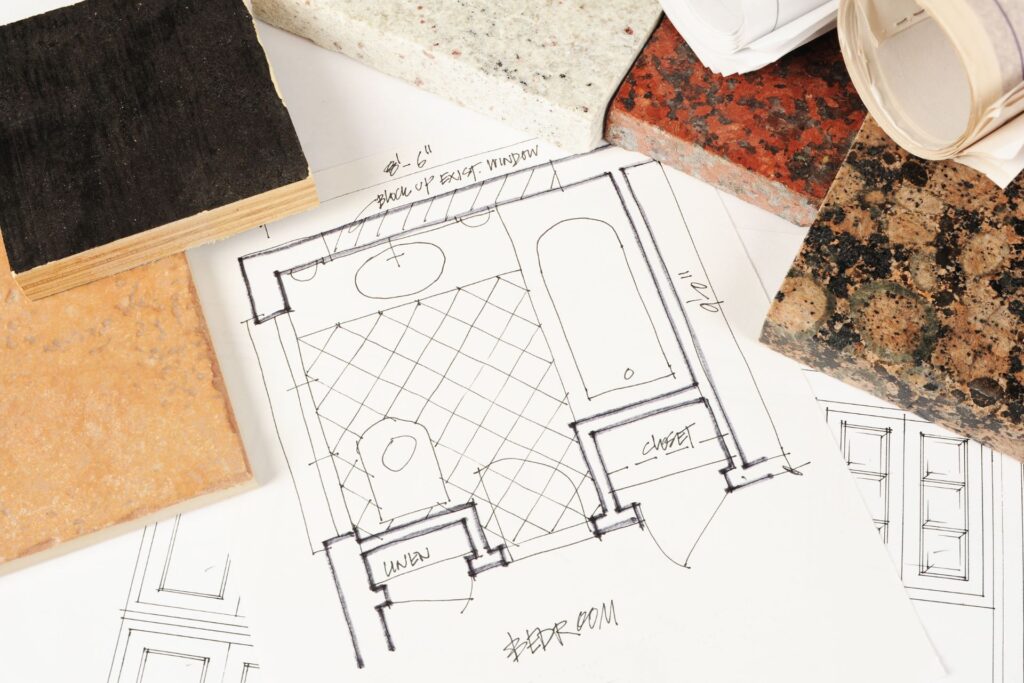
Hidden Costs To Consider
When planning a renovation, it’s easy to focus on the main expenses like materials and labor. However, hidden costs can quickly add up and significantly impact your budget. Being aware of these potential surprises can help you prepare better and avoid financial strain. Below, we’ll delve into three common hidden costs that homeowners often overlook: unexpected repairs, waste disposal, and temporary accommodation.
Unexpected Repairs
One of the most common hidden costs in any renovation project is the discovery of unexpected repairs. While it’s exciting to plan for new fixtures and finishes, sometimes, what lies beneath can be a costly surprise. For example, when removing old cabinetry or flooring, you might uncover water damage that has weakened the structure, necessitating urgent repairs. Similarly, outdated plumbing or electrical systems often don’t reveal their age until you begin work, leading to additional costs to bring everything up to current code.
These repairs are not just inconvenient; they are often necessary to ensure the safety and longevity of your renovation. It’s wise to include a contingency in your budget—typically around 10-20% of the total project cost—to cover these unexpected issues. By anticipating potential problems, you can tackle them head-on without derailing your renovation timeline or budget.
Waste Disposal
Another hidden cost that can catch homeowners off guard is waste disposal. Renovation projects, particularly those involving demolition or the removal of old fixtures, can generate significant amounts of debris. Tiles, old fixtures, cabinetry, and other materials all need to be disposed of properly, and this isn’t as straightforward—or as inexpensive—as one might think.
Depending on the amount of waste, you may need to hire a skip bin or pay for multiple trips to a landfill or recycling center. Moreover, some materials, especially those containing hazardous substances like asbestos or lead paint, require special handling and disposal methods, which can further drive up costs.
To avoid surprises, check with your contractor about what’s included in their services. Sometimes, waste disposal is an additional charge, so clarifying this upfront can prevent unexpected expenses. Planning for these costs ahead of time ensures that your renovation budget remains on track.
Temporary Accommodation
Finally, depending on the scale of your renovation, you may need to consider the cost of temporary accommodation. If the work involves major structural changes, plumbing updates, or other intensive projects, staying in your home might not be feasible. Dust, noise, and the lack of essential facilities like water or electricity can make the environment uncomfortable, if not uninhabitable.
The cost of renting a hotel room, serviced apartment, or even an Airbnb can add up quickly, especially if the renovation takes longer than anticipated. It’s essential to factor in these potential living expenses when budgeting for your project. In some cases, staying with friends or family may be an option, but it’s crucial to have a plan in place before the work begins.
By considering these hidden costs—unexpected repairs, waste disposal, and temporary accommodation—you can approach your renovation with a more realistic budget and avoid the stress of financial surprises. Planning for these additional expenses ensures that your renovation goes smoothly and that you can enjoy your newly improved space without lingering worries about cost overruns.
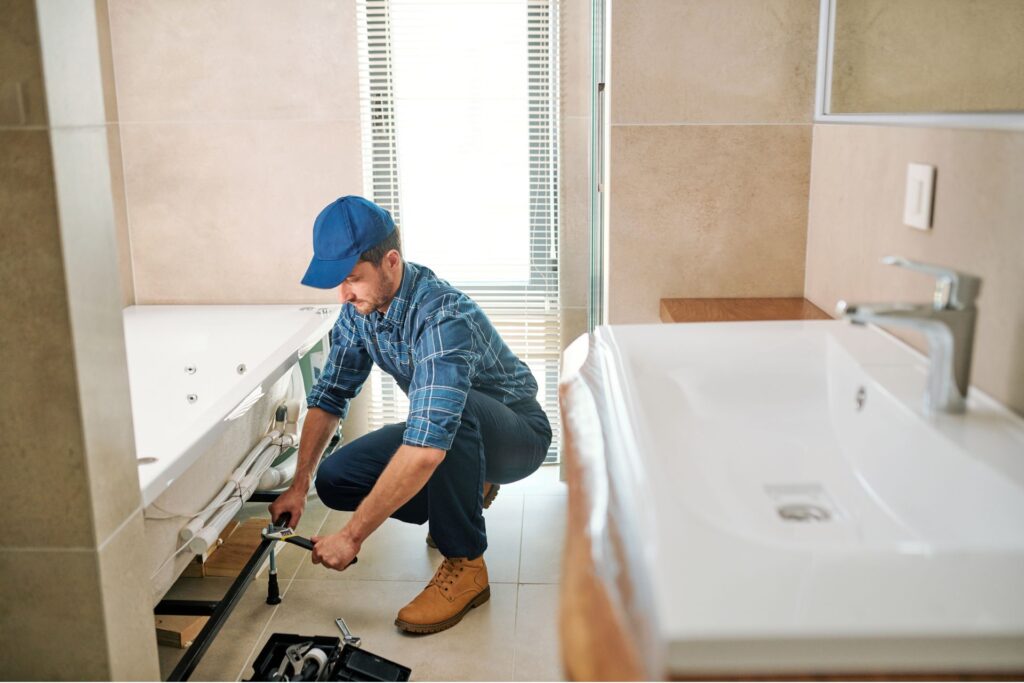
Cost-Saving Tips
When embarking on a bathroom renovation, it’s easy for costs to spiral out of control. However, with a bit of planning and some savvy decision-making, you can keep your expenses in check without sacrificing the quality of your upgrade. Below are some practical tips to help you save money on your renovation project.
Budget Planning
The cornerstone of any successful renovation is setting a realistic budget. Begin by assessing your finances and determining what you can comfortably afford to spend. A well-defined budget acts as a roadmap, guiding your choices throughout the renovation process. It’s essential to factor in all potential expenses, including materials, labor, permits, and a contingency fund for unexpected costs. Sticking to your budget can be challenging, especially when faced with tempting upgrades, but discipline in this area can save you from financial stress later on. Remember, a realistic budget isn’t just about cutting costs; it’s about making informed decisions that maximize your investment.
Prioritizing Upgrades
Not all upgrades are created equal, and prioritizing the most impactful changes can make a significant difference in both the aesthetic appeal and functionality of your bathroom. Focus on high-impact areas that offer the best return on investment. For example, upgrading your shower or vanity can transform the look and feel of the space without requiring a full-scale renovation. These areas are used daily, and improvements here can enhance your overall bathroom experience. By concentrating your resources on key upgrades, you can achieve a fresh, modern look while keeping costs manageable.
Shopping Smart
One of the most effective ways to save money on your bathroom renovation is by shopping smart. Take the time to research and compare prices from different suppliers to find the best deals on materials and fixtures. Look out for sales, discounts, and clearance items that can significantly reduce your costs. Additionally, consider alternative options such as purchasing gently used fixtures or overstock items, which can offer high quality at a fraction of the price. It’s also worth exploring online marketplaces and local suppliers, as they often provide competitive pricing compared to big-box stores. With careful planning and a bit of patience, you can source stylish, durable materials without breaking the bank.
DIY Where Possible
Labor costs can quickly add up during a renovation, so consider taking on some of the work yourself if you have the skills and time. Simple tasks like painting, installing fixtures, or even assembling cabinetry can be managed by a motivated DIYer. Not only does this approach save money, but it also gives you a sense of personal accomplishment in creating your dream bathroom. However, be realistic about your abilities and only tackle projects that you’re confident you can complete to a high standard. For more complex tasks like plumbing or electrical work, it’s best to hire professionals to ensure safety and compliance with local building codes.
By incorporating these cost-saving strategies into your bathroom renovation plan, you can create a beautiful, functional space that aligns with your budget. Remember, a successful renovation isn’t just about the end result; it’s also about the process, and making smart choices along the way will lead to a more satisfying and stress-free experience.
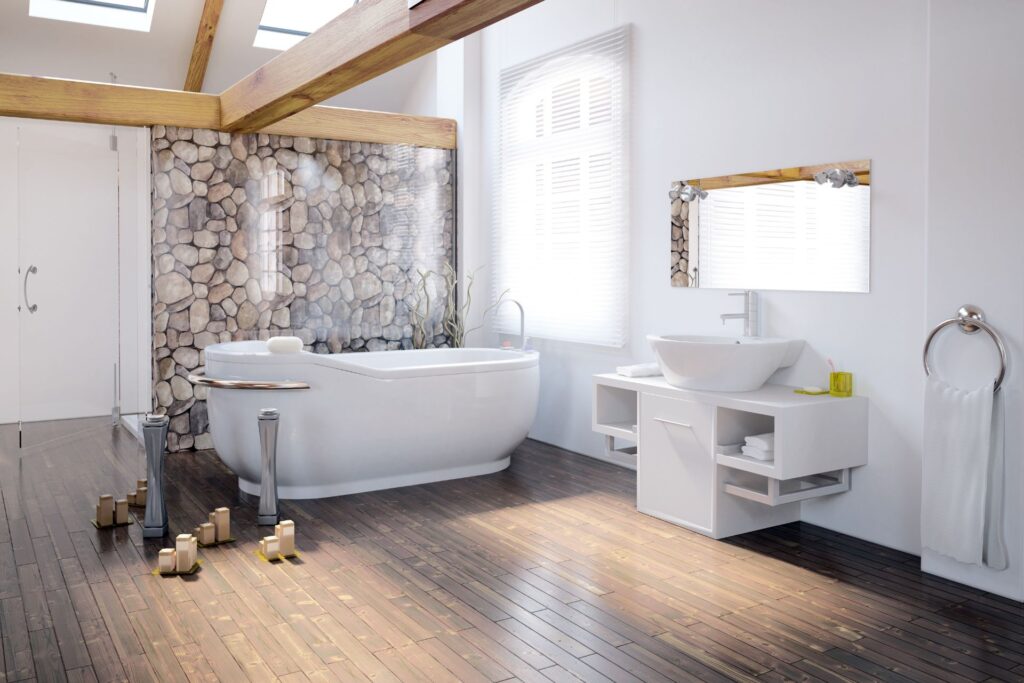
Financing Options For Bathroom Renovations
When embarking on a bathroom renovation in New Zealand, the cost can quickly add up, making it essential to explore different financing options to ensure the project doesn’t break the bank. Understanding the various ways to fund your renovation can help you make an informed decision that aligns with your financial situation and long-term goals.
Personal Loans
Personal loans are a popular option for financing bathroom renovations due to their flexibility and relatively quick approval process. These loans are typically unsecured, meaning you don’t need to put up any collateral, like your home, to secure the funds. This can be particularly advantageous if you prefer not to risk your property.
Personal loans can range from a few thousand to tens of thousands of dollars, depending on your creditworthiness and the lender’s criteria. The loan term usually spans from one to five years, allowing you to spread the cost over a manageable period. However, interest rates on personal loans can vary widely, often depending on your credit score, with higher rates for those with less-than-perfect credit.
One of the key benefits of using a personal loan for your bathroom renovation is the predictability of fixed monthly payments, which can help you budget more effectively. However, it’s essential to shop around for the best interest rates and terms, as some lenders may offer better deals than others.
Home Equity Loans
For homeowners who have built up significant equity in their property, a home equity loan can be a cost-effective way to finance a bathroom renovation. Essentially, a home equity loan allows you to borrow against the value of your home, using the equity you’ve accumulated as collateral.
This type of loan typically offers lower interest rates compared to personal loans because it’s secured by your property, reducing the risk for the lender. The interest you pay on a home equity loan may also be tax-deductible in some cases, providing an additional financial benefit.
However, borrowing against your home’s equity does come with risks. If you fail to make the loan payments, you could potentially lose your home. Therefore, it’s crucial to assess your ability to meet the repayment schedule before opting for this financing option. Home equity loans can be particularly advantageous for larger renovation projects, where the cost may exceed what you could comfortably cover with a personal loan.
Interest-Free Finance Deals
In New Zealand, many retailers and suppliers offer interest-free or low-interest finance deals specifically for home renovations, including bathroom upgrades. These deals can be an attractive option if you prefer to spread the cost of your renovation over time without incurring significant interest charges.
Interest-free finance deals often come with a promotional period, such as 12, 24, or even 36 months, during which you won’t have to pay any interest, provided you meet all the payment requirements. However, it’s important to read the fine print carefully. Missing a payment or failing to pay off the balance within the promotional period can result in steep interest rates being applied retroactively.
Retailers may partner with specific finance companies to offer these deals, so it’s worth exploring the options available from your preferred suppliers. Additionally, while interest-free deals can ease the immediate financial burden, it’s important to ensure that the overall cost, including any potential fees, aligns with your budget.
Final Thoughts
Choosing the right financing option for your bathroom renovation depends on several factors, including the size of your project, your financial situation, and your comfort level with taking on debt. Personal loans offer flexibility, home equity loans provide potentially lower interest rates, and interest-free finance deals can help you manage costs over time. By carefully considering each option, you can find the financing solution that best fits your needs and ensures your bathroom renovation is both beautiful and financially manageable.
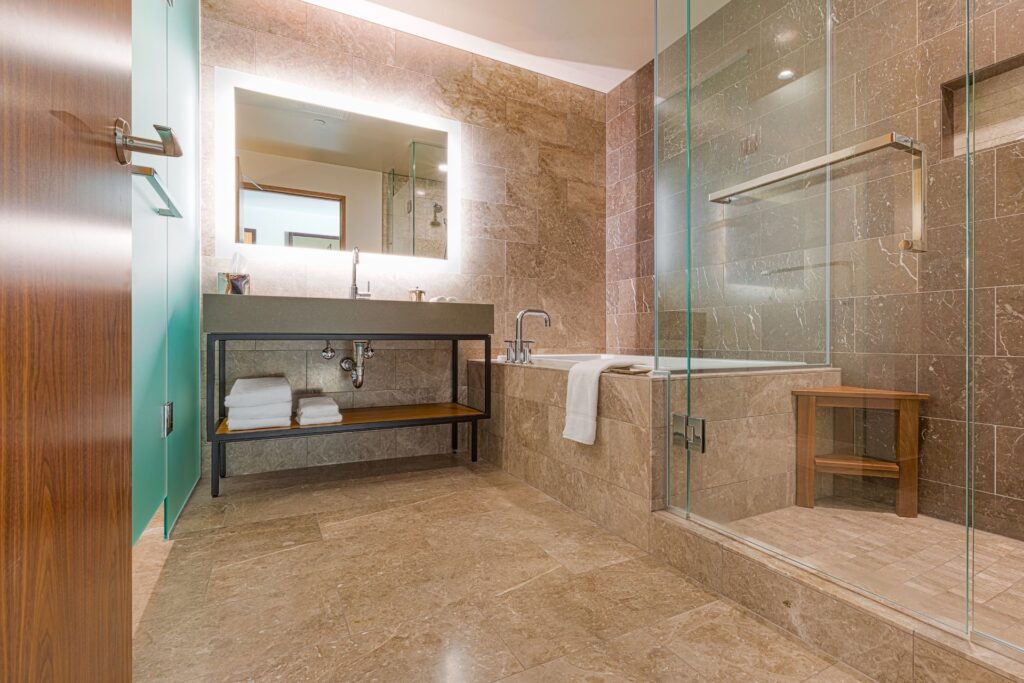
Examples Of Bathroom Renovation Costs In NZ
When planning a bathroom renovation in New Zealand, it’s essential to consider the scope of work, the quality of materials, and the level of craftsmanship you desire. These factors significantly influence the overall cost. To give you a clearer picture, we’ve broken down the costs into three categories: budget renovation, mid-range renovation, and high-end renovation. Each example provides a hypothetical cost breakdown to help you understand what to expect.
Budget Renovation
A budget-friendly bathroom renovation is ideal for those looking to update their space without spending a fortune. This type of renovation typically involves keeping the existing layout, replacing or refreshing fixtures, and using cost-effective materials.
- Scope of Work: For a small bathroom (around 5-7 square meters), a budget renovation might include replacing the toilet, vanity, and shower. The flooring could be updated with affordable vinyl or laminate, and the walls might be painted rather than tiled to save on costs.
- Materials: Budget renovations often utilize off-the-shelf products from major retailers. For example, a basic toilet could cost around $300, a budget vanity unit around $500, and a prefabricated shower unit around $1,000. Vinyl flooring might add another $400, and paint for the walls could be around $100.
- Labor Costs: The labor for a budget renovation, assuming you hire professional tradespeople, might range from $2,500 to $4,000, depending on your location and the complexity of the work.
- Total Estimated Cost: In total, you might expect a budget bathroom renovation to cost between $6,000 and $10,000.
This approach is perfect for rental properties or homeowners looking to update a bathroom without breaking the bank. The focus here is on functionality and basic aesthetics, rather than luxury or extensive customization.
Mid-Range Renovation
A mid-range bathroom renovation offers a balance between cost and quality. It allows for better materials, some customization, and an overall more polished finish. This type of renovation might be ideal for homeowners who plan to stay in their home for several years and want a bathroom that combines style and durability.
- Scope of Work: A mid-range renovation might involve a complete overhaul of the bathroom, including new tiling, a semi-custom vanity, a more stylish toilet and shower, and upgraded fixtures. You might also consider installing underfloor heating or adding some built-in storage solutions.
- Materials: In this category, you might opt for ceramic or porcelain tiles, which can range from $50 to $100 per square meter. A semi-custom vanity might cost around $1,500, and a mid-range shower system could be around $2,500. The toilet and fixtures could add another $1,000 to $1,500.
- Labor Costs: With more extensive work and potentially more skilled labor required, the labor costs for a mid-range renovation might range from $5,000 to $8,000.
- Total Estimated Cost: Altogether, a mid-range bathroom renovation in New Zealand might cost between $15,000 and $25,000.
This type of renovation allows for a more personalized space with higher-quality materials and finishes. It’s a good investment for adding value to your home while ensuring the bathroom is both stylish and functional.
High-End Renovation
A high-end bathroom renovation is all about luxury, top-quality materials, and meticulous attention to detail. This type of renovation is perfect for homeowners looking to create a spa-like retreat in their own home, or those with a focus on adding significant value to their property.
- Scope of Work: A high-end renovation might include a complete redesign of the bathroom layout, custom cabinetry, high-end fixtures, premium tiles, and luxury features such as a freestanding bathtub, a walk-in shower with multiple jets, and smart home integration for lighting and heating.
- Materials: At this level, you might choose natural stone tiles, which can cost $150 to $300 per square meter. Custom cabinetry and vanities could range from $5,000 to $10,000 or more. A high-end shower system, possibly with steam functionality, might cost around $5,000, and a freestanding bathtub could be an additional $3,000 to $7,000. High-quality fixtures and fittings could easily add another $3,000 to $5,000.
- Labor Costs: The labor for a high-end renovation is typically the most expensive, often ranging from $10,000 to $20,000, depending on the complexity of the work and the level of craftsmanship required.
- Total Estimated Cost: For a luxury bathroom renovation in New Zealand, you could be looking at a total cost of $30,000 to $60,000 or more.
This investment not only enhances your daily living experience but can also significantly increase the value of your home. High-end renovations are often characterized by bespoke designs, cutting-edge technology, and the finest materials, creating a space that truly stands out.
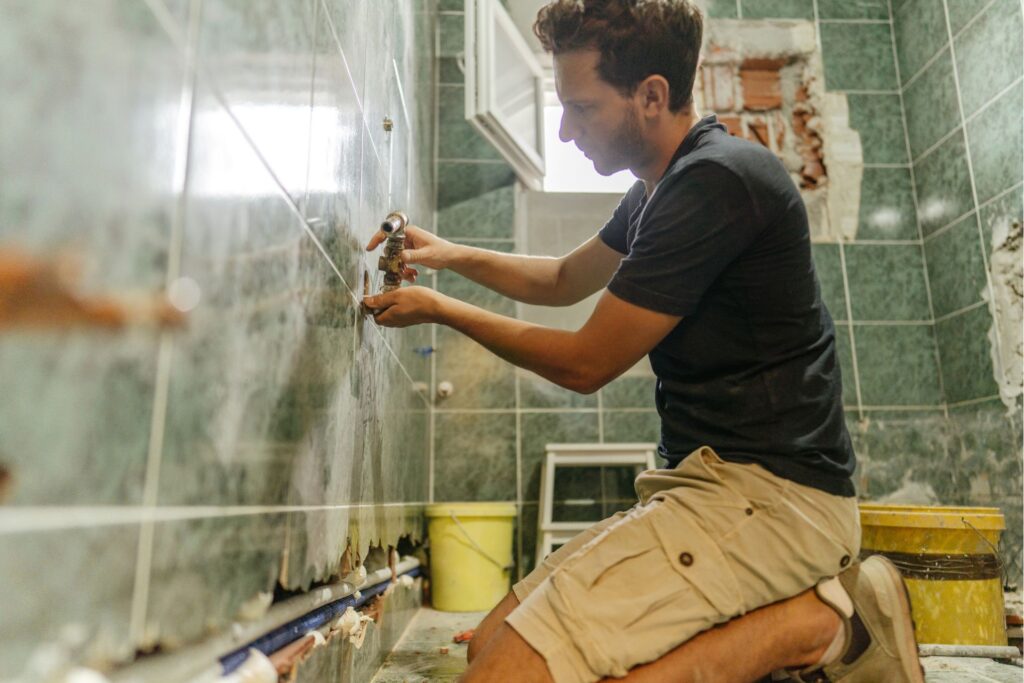
FAQs: About Cost Of Bathroom Renovations NZ
How much does a basic bathroom renovation cost in New Zealand?
A basic bathroom renovation in New Zealand typically costs between $5,000 and $10,000. This includes minor upgrades such as replacing fixtures, updating tiles, and refreshing the paint. Costs can vary depending on the quality of materials and labor rates in your area.
What factors influence the cost of a bathroom renovation in NZ?
Several factors influence the cost, including the size of the bathroom, the quality of materials (tiles, fixtures, fittings), the scope of work (partial vs. full renovation), labor costs, and any structural changes like moving plumbing or altering the layout.
How long does a bathroom renovation take?
A typical bathroom renovation in New Zealand can take anywhere from 2 to 6 weeks, depending on the complexity of the project. Minor renovations may be completed in a shorter timeframe, while more extensive projects involving structural changes may take longer.
Do I need a building consent for a bathroom renovation in NZ?
Building consent may be required if your bathroom renovation involves structural changes, significant plumbing work, or alterations to the layout. It’s important to check with your local council to ensure compliance with regulations.
Can I save money by doing some of the work myself?
Yes, you can save money by undertaking some tasks yourself, such as painting, installing fittings, or demolition work. However, for tasks like plumbing, electrical work, and waterproofing, it’s advisable to hire professionals to ensure the job is done correctly and to code.
What are the hidden costs to consider in a bathroom renovation?
Hidden costs can include unexpected repairs (e.g., water damage or outdated plumbing), waste disposal fees, temporary accommodation if the renovation is extensive, and potential delays that extend labor costs.
How can I keep my bathroom renovation costs down?
To keep costs down, plan your budget carefully, prioritize essential upgrades, choose budget-friendly materials, and consider DIY for simpler tasks. Shopping during sales or sourcing second-hand fixtures can also help reduce expenses.
What financing options are available for bathroom renovations in NZ?
Financing options include personal loans, home equity loans, and interest-free finance deals offered by some retailers. Each option has its pros and cons, so it’s important to choose one that best suits your financial situation.
What should I prioritize in a bathroom renovation if I have a limited budget?
If you have a limited budget, prioritize essential upgrades that improve the bathroom’s functionality and safety, such as plumbing, waterproofing, and ventilation. Cosmetic changes like new tiles and fixtures can be done later as funds allow.
Can a bathroom renovation increase the value of my home?
Yes, a well-executed bathroom renovation can significantly increase the value of your home, especially if it improves functionality, aesthetics, and modernizes outdated features. It’s one of the most important rooms that potential buyers consider when assessing a property’s value.
Conclusion
When planning a bathroom renovation in New Zealand, it’s crucial to consider the various factors that can influence costs, such as materials, labor, and permits. By understanding these elements, you can better manage your budget and achieve a result that adds lasting value to your home. As you embark on this journey, take the time to plan thoroughly, weighing both immediate costs and the long-term benefits of your choices. For a truly personalized and accurate estimate, it’s always a good idea to consult with a professional who can offer tailored advice based on your specific needs and circumstances.
About the Author:
Mike Veail is a recognized digital marketing expert with over 6 years of experience in helping tradespeople and small businesses thrive online. A former quantity surveyor, Mike combines deep industry knowledge with hands-on expertise in SEO and Google Ads. His marketing strategies are tailored to the specific needs of the trades sector, helping businesses increase visibility and generate more leads through proven, ethical methods.
Mike has successfully partnered with numerous companies, establishing a track record of delivering measurable results. His work has been featured across various platforms that showcase his expertise in lead generation and online marketing for the trades sector.
Learn more about Mike's experience and services at https://theleadguy.online or follow him on social media:
